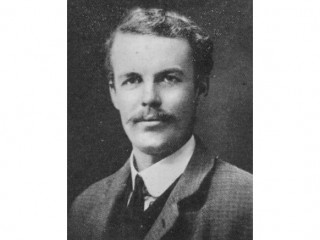
Arthur Cecil Pigou biography
Date of birth : 1877-11-18
Date of death : 1959-03-07
Birthplace : Ryde, Isle of Wight
Nationality : British
Category : Politics
Last modified : 2010-12-14
Credited as : Economist, ,
The English economist Arthur Cecil Pigou is best known for his basic contributions to the theory of welfare economics and for his defense of neoclassic economics against the attacks of the Keynesian school.
Son of an army officer, A.C. Pigou was born on Nov. 18, 1877. Educated at Harrow and King's College, Cambridge, he compiled a brilliant record that included numerous prizes. He was made a fellow of King's College in 1902 and, in 1908, succeeded Alfred Marshall in the chair of political economy.
Like Marshall, Pigou felt that the study of economics could be justified only as a means of improving human society. Building upon the base of Marshallian economics, he set out modifying, expanding, and adapting the apparatus so that it could be directly applied to the exploration of ways and means by which social intervention would yield benefits in terms of economic welfare.
Wealth and Welfare (1912) contains, in embryonic form, the central core of Pigou's contribution to economic theory. Beginning from the proposition that economic welfare depends upon the size, the manner of distribution, and the variability of the national dividend, Pigou carefully analyzed the competitive economic system to find how it falls short of the ideal and the means by which the ideal can be achieved. The central concept of his analysis was the distinction between private and social net product—private product being the product that accrues to the individual making a decision concerning production, and social net product being the net product that accrues to society as a result of the decision. In a competitive economy, decisions are made in such a way as to maximize private net product but not necessarily social net product. Appropriate taxes and subsidies could, however, make private and social net products equal, thus leading each individual to behave in a way that maximizes social welfare.
In 1933 Pigou published The Theory of Unemployment, a book that was held in great esteem by orthodox economists. As such, it became a prime target for attack by John Maynard Keynes in his General Theory of Employment Interest and Money (1936). Pigou answered with several books and articles in which he attempted to reformulate his position in the light of Keynes's criticisms. In the end, his most lasting contribution was to point out that, as long as wage and price flexibility exists, the value of assets, the prices of which are fixed in money terms, will rise as wages and prices fall, reducing the propensity to save and, consequently, increasing the propensity to consume. It follows from the "Pigou effect" that Keynes's "under-employment equilibrium" is not a true equilibrium but a state of disequilibrium occasioned by inflexible wages and prices.
Pigou died on March 7, 1959, at the age of 81.
















